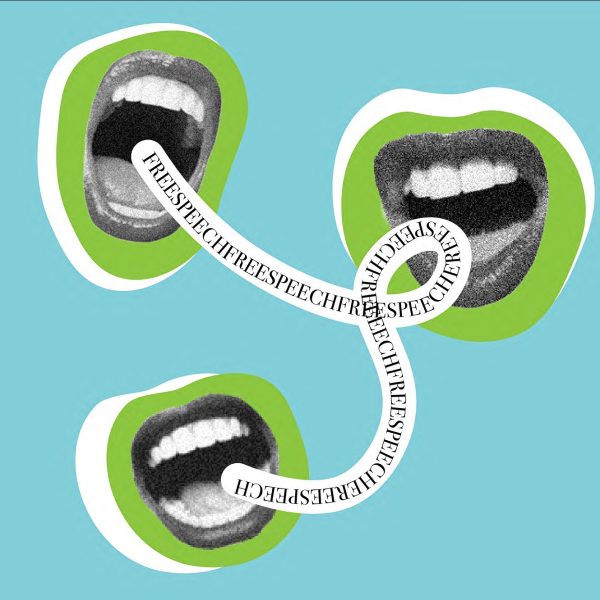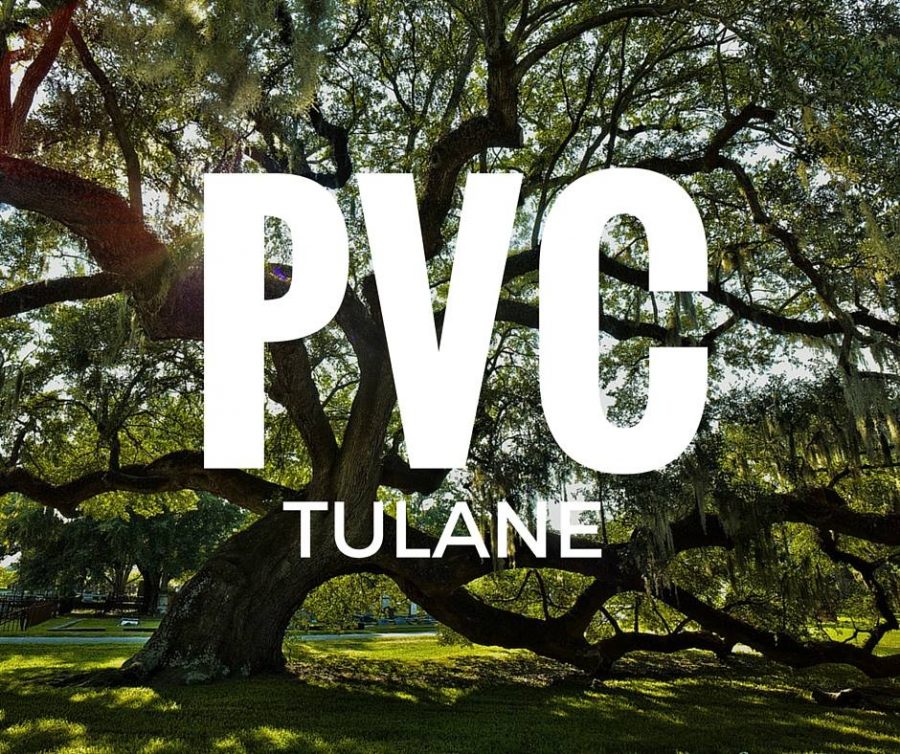Progressive Voter Coalition: Vice President for Student Life Candidate
Editor’s Note: The Progressive Voter Coalition has since been disbanded by the USG Awards and Elections Committee. Click here for more information.
The Hullabaloo is reposting the answers as written by candidates and submitted to the Progressive Voter Coalition. These responses have not been copy edited by our copy team.
The Progressive Voter Coalition (PVC)’s goal is to advocate for progressive goals and values and ensure that the voices of students are heard with the same volume other powerful institutions. We are excited to present the PVC Questionnaire for the 2018-2019 USG Executive Board candidates. We contacted over 40 progressive organizations for questions they wanted to ask candidates and have included the most poignant ones below. All USG Exec. Board ballot candidates were contacted for responses and we have listed what we have received. Thursday, March 8th, the PVC will listen to oral presentations from all participating candidates and make a public slate of endorsements for each position. Candidates were asked to keep their answers to a minimum of 2-3 sentences. Answers are divided by position and candidates are listed in alphabetical order by first name. The PVC is an AEC-confirmed coalition and has been in contact with the AEC to follow standards and rules.
How can more funding be given to Multicultural Council (MCC) and Gender and Sexuality Advisory Council (GSAC) organizations on campus? If so, what would this process look like for you? (Gender Exploration Society)
Joseph Sotile: I believe these councils are doing important work and I will advocate for and support these groups with the resources that they need to continue to make positive change. While organizational funding is not in the sphere of control for VPSL, I will work with the next VPF to ensure equitable funding to all organizations making change on campus
Do you support the USG initiative to remove the racist namesake of F. Edward Hebert? Do you support a push for Tulane to recognize legacies of oppression and to reclaim its racist history? What would this process look like to you? (Students Organizing Aginst Racism)
Joseph Sotile: Yes. I think that it is important to acknowledge, process, and attempt to rectify the racist history of Tulane. This process will take a long time: change takes effort and persistence. Students have taken the lead to create change on our campus in this regard, both through Herbert legislation and through articles written about Tulane’s history in the Hullabaloo. Students are already pushing for and facilitating change; I want to do what I can to make sure they are heard and be an intermediary for administration and students. I also realize that a majority of the issues will be shared with DIEC so I will continue to support them in all research and activist action.
When the “It’s okay to be white” signs were posted around Tulane’s campus, what was your initial reaction? How do you see this in representation of race relations on Tulane’s campus? (Students Organizing Against Racism)
Joseph Sotile: I was appalled but, sadly, not entirely surprised. Tulane continues to have problems regarding race relations that we must strive to unpack and work through every day. There will be pushback and resistance to any type of change, but it is imperative that we continue to push through these obstacles. Important work has been done, such as the creation of the Center for Academic Equity and changes to the admissions process, but we still have a large volume to do.
In the wake of the mass shooting at Marjory Stoneman Douglas High School, what do you think gun control should look like on Tulane’s campus? (Students for Justice in Palestine)
Joseph Sotile: No guest, student, faculty member, or staff is permitted to carry a firearm, regardless of license, on Tulane’s campus without the explicit permission of TUPD. TUPD has assured me that this policy is stated on every road entrance into campus. I fully support these policies. As Director of Student Safety, I helped to put on the Active Shooter Response Trainings that taught students and faculty what to do in the instance of an active shooter on campus. I plan to ensure that these trainings continue.
Did you attend the Wave of Change Town Hall event? What do you think are the most crucial steps to reducing sexual violence on Tulane’s campus? What do you think were the shortcomings in the Wave of Change and climate survey initiatives? What will you do to ensure the protection of survivors? (Muslim Students Association)
Joseph Sotile: I was not able to attend due to a conflict; however, I have thoroughly read the release. I respect our Title IV Coordinator, Ms. Meredith Smith, and recognize and appreciate every effort she has taken to listen to student opinions and to be transparent with Wave of Change.. I think that student-led initiatives, like the Title IX seminar course, are a great way for the administration to listen to our voice and make change that matters. One of the most important aspects that we as an institution need to focus on is the process of reporting sexual assault. This includes clarifying the reporting process and defining the level of privacy a student has during a TUPD or Tulane investigation, as well as ensuring that Tulane actually takes action in support of the survivor.
Do you think queer students at Tulane hesitate to come out of the closet? How can USG and Tulane help queer people feel more comfortable and visible? (Queer Student Alliance)
Joseph Sotile: Yes. I think it is important to note societal and familial pressure when discussing this issue, but USG can pledge to give these students a venue to make change on this campus. I will make USG a more welcoming space and a resource for these students by having open ears and open doors for these students to discuss their experiences and to help them to take action.
How do you feel about the current dialogue on campus regarding the Israeli-Palestinian conflict? Should any steps be taken to make this dialogue more inclusive? If so, what specific measures can you commit to enacting while in office? (Students for Justice in Palestine)
Joseph Sotile: Tulane has a large Jewish population with many students who have a deep and meaningful connection with Israel, and these students are incredible in their dedication to their heritage and culture. Many of these students are pro-Israel and that is an entirely valid stance to have; however, since much of the time this stance feels like the majority, some students who support Palestine feel targeted. For this topic specifically, I support forums for pro-Palestinian dialogue, like SJP, to be created and utilized by students who are curious or who hold the same viewpoint.
What is the difference between diversity and anti-racism? If elected, how do you plan to use your leadership position in anti-racist efforts? (Students Organizing Against Racism)
Joseph Sotile: Diversity is a passive construct – having some marginalized students in a room qualifies as “diverse.” Anti-racism is a much more active process where someone consciously acknowledges one’s identity and intentionally acts against institutional racism. I plan to use my position as VPSL to uplift voices of dissent and change, facilitating round-tables and forums focused on the aspects of Tulane, its administration, and its culture where we can improve.
Some students feel that there is an unequal distribution of labor put onto marginalized students to address their own issues. If elected, how do you plan to address this precedent of tokenization? (Students Organizing Against Racism, Muslim Students Association)
Joseph Sotile: Though I am incredibly thankful for all of my colleagues and friends of marginalized identities for their hard work in bettering Tulane, I also know that this institution often capitalizes on their labor. By supporting the work of marginalized groups on campus, truly listening to them about what changes they want to see made on campus, and aiding them in their initiatives with the resources available, USG can better include and represent these groups who should not have to carry the weight of creating a more inclusive campus alone. Furthermore, I plan to be accessible to each of these student organizations’ ideas, discussions, and initiatives.
What additional mental health services do we need on campus to supplement CAPS? What needs to change about the mental health culture on campus? (National Alliance on Mental Illness- 2017)
Joseph Sotile: There needs to be more access to counseling services: I believe that CAPS should have longer hours to accommodate students’ busy schedules. There is also a very present stigma against mental healthcare at Tulane, and I will encourage initiatives that normalize mental health services by working with CAPS and the director of the Student Health Advisory Committee.
How do you plan to support the expansion of reproductive health resources for students on and off campus? (Students United for Reproductive Justice)
Joseph Sotile: We need to ensure that the processes that are in place for the Health Center do not lend themselves to be intrinsically intrusive or judgmental towards students. The Health Center should be a place where students feel safe and comfortable talking about their sexual experiences and should have resources to get tested for STDs.
Have you attended the LGBTQ Ally Workshop or Trans 101? What LGBTQ events on campus have you attended? If not, will you commit to attending one in the Fall? (Queer Student Alliance, Gender Exploration Society)
Joseph Sotile: I have attended an LGBTQ 101 but I have not taken Trans 101. I commit to attending a Trans 101 course in the fall.
Have you attended an Undoing Racism workshop in the past – if yes, when? How did it change the way you act as a leader on campus? If you have not attended, will you commit to attending the Fall 2018 workshop? (Students Organizing Against Racism)
Joseph Sotile: I have not attended one yet, but it will be a priority of mine to attend one of the upcoming workshops.
What strategies do you plan to implement to make USG itself a more accessible place on campus, especially for groups historically marginalized by this institution? (Students Organizing Against Racism)
Joseph Sotile: USG has to be more accessible to all students willing to make positive change on campus. The input and advice of marginalized students is invaluable, though they are by no means the only students who must shoulder the burden. These students know where change is needed the most, and I plan to work closely with GSAC and MCC, going into their spaces and heeding their input, when forming initiatives and legislation.
Why do you think the rates of sexual assault are so much higher for LGBTQ students? (Queer Student Alliance)
Joseph Sotile: For Tulane, the education available on this issue is overwhelmingly heteronormative. Furthermore, there is a huge misunderstanding of the definition and importance of consent. I believe that this, and the fact that the LGBTQ+ population has traditionally faced prejudiced violence, are contributors to the targeting of this community. Efforts attempting to curb sexual assault need to be made with this community in mind from the beginning, not just as an afterthought or addition.
Do you have any plans to make Tulane’s campus more environmentally-friendly? If so, what are they? (Green Club)
Joseph Sotile: Yes. I think that Tulane should commit to solar installations, starting with small scale implementation. Further, I believe that Tulane can create more locations for garbage cans and recycle bins in more convenient locations around campus.
Do you believe that sexual violence prevention training (e.g. bystander intervention) should be mandatory for all students? (Tulane University Peer Health Educators)
Joseph Sotile: Absolutely.
Your donation will support the student journalists of Tulane University. Your contribution will allow us to purchase equipment and cover our annual website hosting costs.
















Leave a Comment